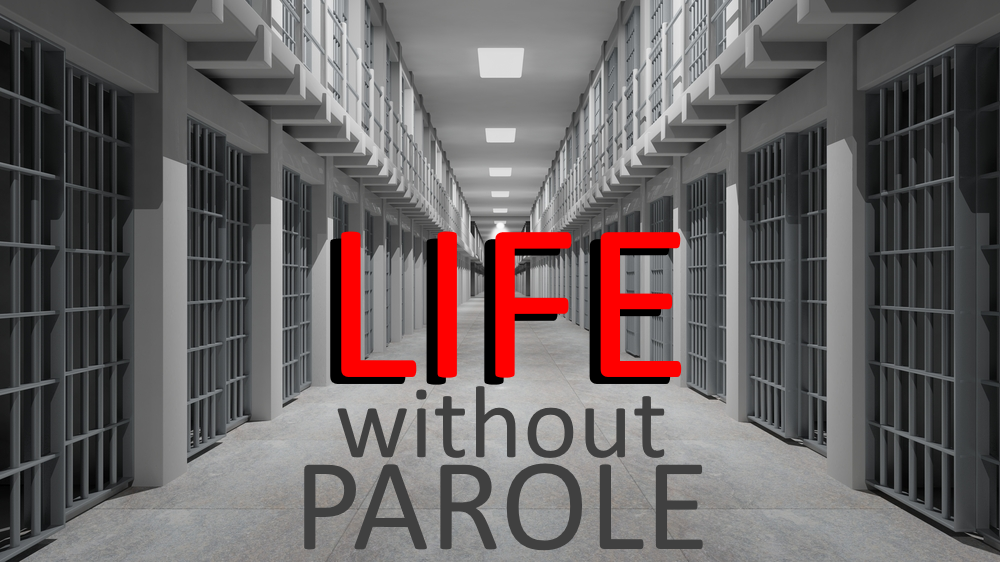 GTS/SHUTTERSTOCK
GTS/SHUTTERSTOCK
The U.S. Supreme Court last month affirmed that lifetime imprisonment without the possibility of parole is just punishment for Brett Jones, who was convicted in 2005 of murdering his grandfather, a tragedy that the then 15-year-old said was an act of self-defense.
Jones and his lawyers testified, during his Mississippi trial, that he’d suffered from severe depression as a result of years of being physically and mentally battered. The Supreme Court majority, ignoring the years of abuses and betrayals Jones suffered and letting the lifetime sentence stand, displayed a grotesque and primitive cruelty toward youth.
According to court testimony, Jones had been routinely beaten by his violent, alcoholic dad, who, during fits of rage, broke his wife’s nose several times and knocked out her teeth. She divorced him and married a second husband who, she testified in court, hated her son, refused to call him by his name, hurled vicious epithets at him and repeatedly beat him with belts, switches and a paddle the stepfather labeled “The Punisher.” Jones’ mother testified that she had panic disorder, anxiety, insomnia, post-traumatic stress disorder, bipolar disorder and manic-depression. She abandoned her son on occasion, often for days at a time.
One day, when he was 14, Jones fought back, punching his stepfather, splitting his ear and telling him, “You’re not going to hit me again.” The result? Police were called and Jones — not his stepfather — was arrested. Banished from his Florida home by his stepfather, Jones was sent to live with his grandparents in Mississippi. His lawyer testified that, in Mississippi, Jones was abruptly taken off medications he’d been prescribed for his mental troubles.

Mike Males
Days after his 15th birthday, the grandfather threatened to punish Jones after catching Jones’ girlfriend, a runaway from Florida, in the boy’s bedroom. Jones testified that, later that day, in the kitchen where Jones was making a sandwich, the grandfather began arguing with Jones about the girl. Jones testified that, in response, he “sassed” his grandfather. Jones testified that his grandfather shoved, cornered and repeatedly tried to hit him. Jones began stabbing his grandfather with the knife he was using to make the sandwich and, when that one broke, a second knife.
“I was stabbing him because I was afraid, I didn’t know anything else to do because he was so huge,” Jones testified. “He’s not really a big looking man until he gets in your face with his hands up and swinging at you, and then he turns into a giant. And you just feel like there’s no way out, no way to get away from him.”
Instead of confronting the damning facts of this case, the justices buried them in legalistic trivia over what technical standards judges must follow when deciding whether to condemn youths to spend the rest of their lives in prison with no hope of release. The justices’ arguments, and the majority’s 6-to-3 vote to retain the lower court’s lifetime sentencing of Jones, did not review whether the facts justified Jones’ draconian prison sentence. (In fact, the majority of justices wrote that they were not agreeing or disagreeing with the life sentence.) Rather, the justices spent nearly all of their 57-page ruling squabbling over whether judges, before sentencing a youth to a prison sentence with no parole prospects, must formally rule on whether the juvenile’s actions reflect “permanent incorrigibility” or merely “transient immaturity;” the latter is defined as “the ‘recklessness’ and ‘impulsivity’ characteristic of juveniles.”
However, the high court’s own record amply shows that Jones’ crime was the product of neither transient immaturity nor permanent incorrigibility. One can reasonably interpret Jones’ actions as justifiable self-defense after years of abuses — and realizations that no one else was protecting him. Jones’ violent reaction was a reaction to violence. He merited mental health treatment and other supports, not prison.
In no reasonable way can Jones’s actions be termed the product of any innate characteristics of immaturity, recklessness, impulsivity, or “resorting to violence,” either in Jones as an individual or in teenagers as a whole. To add insult to injury, the justices’ fixation on how the courts should treat such mythical “youthful characteristics” became their excuse for ignoring the factual elephant in the case: that the crime in question was not a feature of youth at all, but of harsh circumstances and conditions imposed on Jones that could have (and has) driven grown adults to violence.
Sotomayor at least mentioned this complication before failing to confront it: “Jones was the victim of violence and neglect that he was too young to escape … The types of adverse childhood experiences that Jones endured, including physical abuse, domestic violence, and mental illness in family members, are strong predictors of negative outcomes for children, including violence.”
Nowhere did the justices hold the adults in Jones’ life accountable for their years of brutalizing him. Nor did they hold his grandfather responsible for provoking and escalating the altercation that ended in his murder.
Teenagers’ crimes (and this opinion brims with compelling examples) often are founded in conditions of severe poverty, violent abuses, and denial of basic rights that adults inflict on youth. These provide good arguments against sentencing youths to life without parole. Juveniles and juvenile defendants have fewer rights in society and the judicial process. A society that refuses to afford adolescents full rights cannot morally impose ultimate penalties on them.
In a country that actually cared about young people, Brett Jones would be freed from prison and absolved of what he did to protect himself. Unfortunately, as the Supreme Court’s ruling in this case makes clear, we don’t live in that kind of country.
YouthFacts.org co-founder Mike Males is a senior research fellow at the Center on Juvenile and Criminal Justice, author of five books on youth issues and former University of California sociology instructor.































